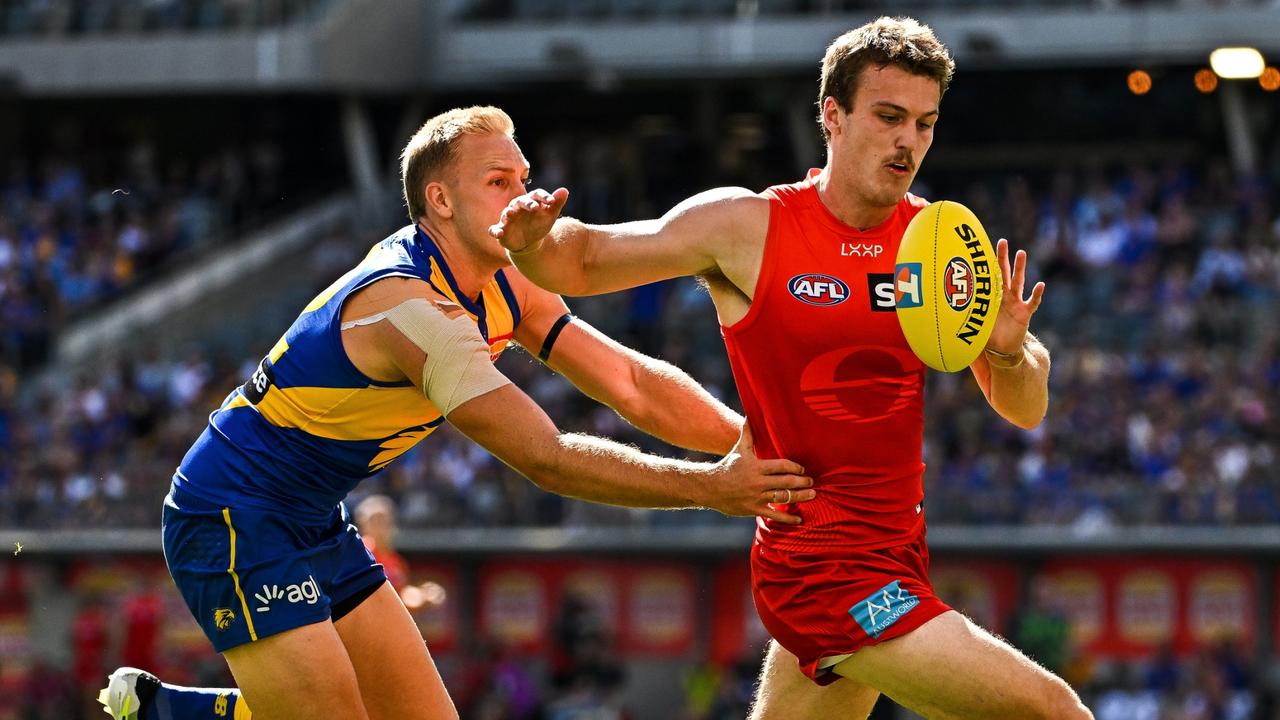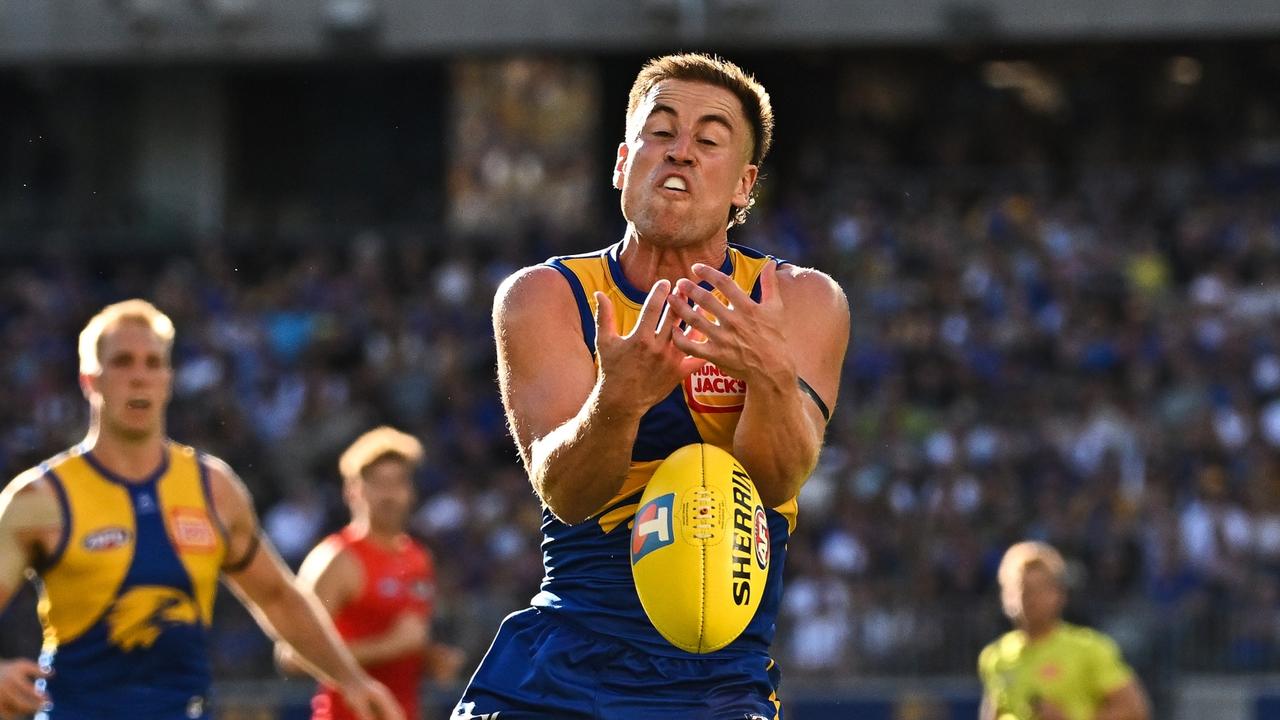AFL 2023: Mick Malthouse on the relentless pressure and challenges of being a senior coach
Six months after I finished coaching I finally slept a full night, writes Mick Malthouse. The pressure is relentless and the self doubt is real. This is life as a senior AFL coach.
AFL
Don't miss out on the headlines from AFL. Followed categories will be added to My News.
Two AFL coaches with seven premierships between them have stepped down in the past fortnight, both clearly stressed, angry, burnt out, and weighed down by different pressures.
Am I surprised? Not in the least.
Yes, it’s unprecedented to have two masterful coaches, peers and friends, depart their clubs at a similar time. But, on reflection, we could have seen this coming.
A poor performing team is the final straw to the pressure that is heaped on a coach from the moment they take on the job.
North Melbourne supporters and some in the media had high expectations of Alastair Clarkson turning the club’s fortunes around overnight. That was a ridiculous expectation, even for Clarkson.
At Punt Road Oval, once the premiership drought was broken in 2017, it was expected that Richmond would remain a highly competitive force while Damien Hardwick was at the helm. Again, it’s just not realistic.
It always felt like a privilege to coach at VFL and AFL level. But I noticed as the years went by that the demands grew, expectations increased, and as the media became more concentrated on success, the pressure built.
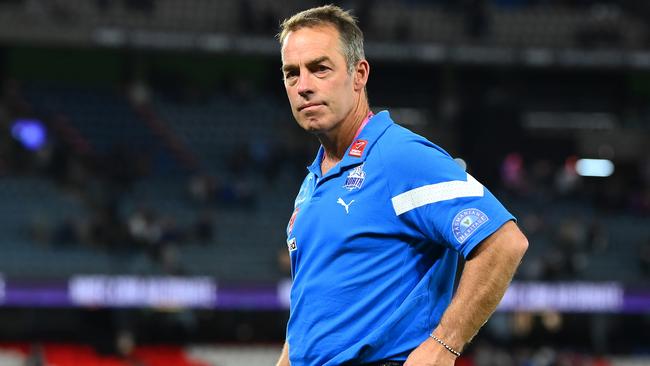
Coaching is a wonderful extension of your playing career, but it is a far more difficult job. In many respects it gives you greater joy to see the whole club achieve victory, as opposed to an individual player having a good game. But that success rests squarely on your shoulders as the person calling the shots from the hot seat.
It is a far less selfish role because it’s clearly not about you. People go through the turnstiles not to see the coach but to see their idols, the players. None-the-less, no player could feel the same pressure as the coach. They play their role; the coach is accountable for all roles.
More often than not, the coach has a young family with children going to school.
Regardless of how successful the club is, that means the pressure extends to the family and your first instinct is to protect them.
I distinctly remember my two sons telling me they wouldn’t go to school on the Monday if West Coast lost to Fremantle that weekend. It didn’t matter that the Eagles played finals every year for the 10 years I was there, that one potential loss was enough to create misery for them at school. It wasn’t added incentive for me to win. It was added pressure.
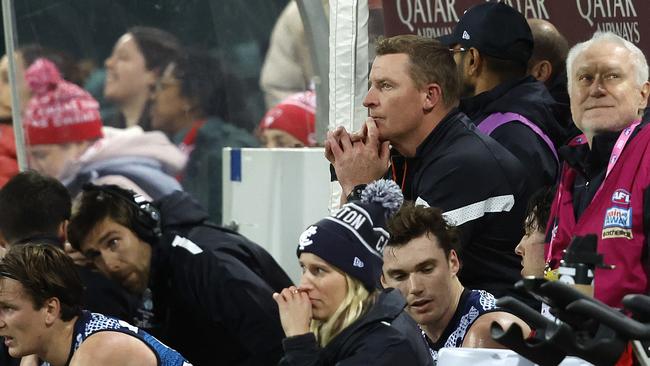
There’s no doubt the coaches under scrutiny today – Adam Simpson, Michael Voss, Stuart Dew, and even Ken Hinkley, would all be feeling for their family first right now.
It’s an afterthought for everyone else except the coach whose family is feeling the strain. That’s why I wasn’t surprised that both Clarkson and Hardwick mentioned their families in their departure statements. Your family and true friends are the only people who stick by you through the ups and downs of life as a football coach.
Everyone else only sees your façade as you walk through the club gates on a Monday morning, hiding the relief of a win or the grief of a loss.
People at football clubs are fantastic people. They try to give you space when they think you need it. They tip-toe around unnecessarily, feeling apprehensive about mounting losses. The coach’s job is to reassure them that things will be fine: “We’re still in the hunt!” Your football family relies on you as much as your real family, just in a different way.
Then there’s the players. You need to move on to the next game quickly so that they will, too. You must remain upbeat and positive, even though every loss stings like hell, so that they do too. The feeling of a win diminishes almost every year that you coach because there’s no time to appreciate it when there’s another opponent to prepare for. Another game to get the players up for.
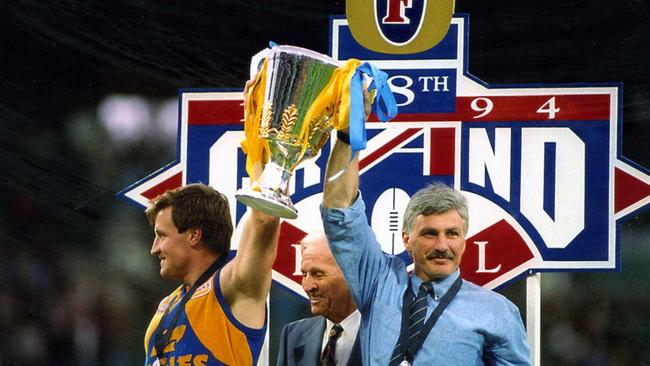
It was an extraordinary feeling to win in my early days as coach of Footscray. There was no less joy from a win at West Coast, but it very quickly became business as usual. At Collingwood and Carlton, happiness from a victory was fleeting.
A premiership is pure relief. A little pride, but mostly just an overwhelming sense of solace. A grand final loss is gut wrenching and stays with you like a stain.
No one is at fault here but the coach. In my experience, I felt so responsible, and the losses were so devastating, that it wears you down. And if you have repeated losses, it’s relentless.
Six months after I finished coaching I finally slept a full night. It was so foreign to me that I still remember waking and being surprised that I hadn’t woken earlier. For all the years I coached I would wake through the night with thoughts of football.
Season’s end was hardly a relief either, because then you engage in delisting, trading, drafting and recruitment. You question your game plan and methods, look closely at the staff around you, zero in on the opposition, travel to explore other methodologies in various industries and sports. So, time off is still very much entrenched in football. The only thing missing is the week-to-week assessments and judgment.
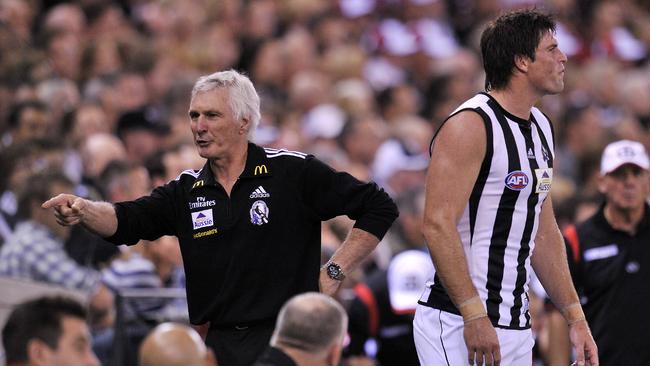
If you coach, you coach 24 hours, seven days a week, every week of the year. That’s the job.
Even though Hardwick had a contract until the end of 2024, his admission that he wasn’t going to coach next year was a clear indication, to me, that his focus had already shifted. He could no longer be switched on to every demand by every person at the club, and every moment of every game. So, his decision to resign was the right one.
Believe me, you live with enough doubt as a coach. If you haven’t got a winning side then you are constantly testing yourself: are my methods right? You have massive self-doubt which you wrestle with daily, flamed by media, social media, and comments made by board members and administration.
Both Clarkson and Hardwick appeared to have total board support. Clarkson is dealing with something totally different to Hardwick, but the mind is equally affected in questioning your very existence as a coach.
Early in 2002, I was informed by then Collingwood CEO Greg Swann that the board wanted to sack me. It certainly didn’t make me try harder or change my principles about the game, as it is something that is instilled in you early on as a coach that your exit will most likely be determined by someone else.
I wasn’t angry. I kept the information to myself to protect those around me, and I treated the next game like any game. As it turned out we won the next five games and played off in the grand final against the mighty Brisbane Lions. That wasn’t the only time that sacking was mentioned to me. It happens, it’s an emotional game with high stakes.
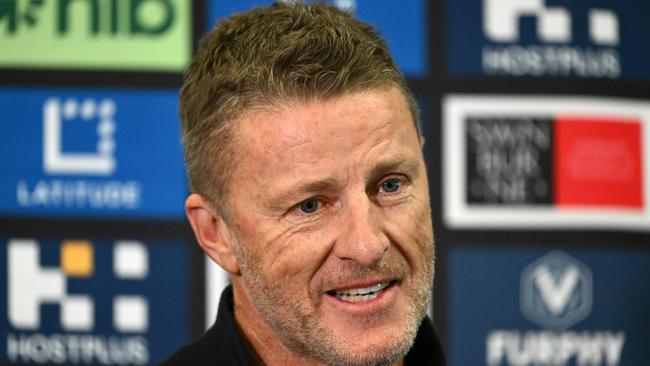
Coaching in the AFL brings with it a very public form of pressure that is quite unique to elite sport. And it takes a thick skin to survive it.
The coaches’ association can only do so much, the clubs can only do so much. The only fallback for a coach is family and friends and their constant support. But the reality is that you are fairly alone in the role. Most coaches don’t want additional support. The old saying, “I’m big enough and ugly enough to handle it myself”, is imprinted on you.
Clarkson and Hardwick have chosen to step away. To ease the pressure and heal the burnout. It might seem strange in today’s society that this has happened to two great coaches, but they’re not the first and they won’t be the last. So, we wish them well, and hope they soon get a full night’s sleep. It does wonders!




